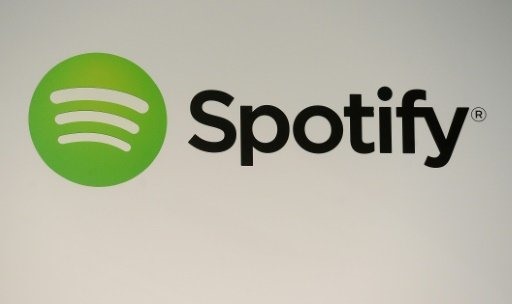 Life & Style
Life & Style

Music streaming leader Spotify has agreed to set up a US$43.45 million fund to settle a potentially costly pair of US copyright lawsuits from artists, lawyers said on Monday.
 |
| Music streaming leader Spotify has agreed to set up a US$43.45 million fund to settle a potentially costly pair of US copyright lawsuits from artists, lawyers say. — AFP/VNA Photo |
NEW YORK — Music streaming leader Spotify has agreed to set up a US$43.45 million fund to settle a potentially costly pair of US copyright lawsuits from artists, lawyers said on Monday.
The move marks the latest effort by the Swedish company to turn the page on messy disputes as it considers a public listing amid the soaring growth of streaming.
The settlement would end lawsuits spearheaded by two indie songwriters who double as academics -- folk rock singer Melissa Ferrick and David Lowery, frontman of alternative rock bands Cracker and Camper Van Beethoven.
The two had pursued class-action cases -- meaning a mass of musicians could claim payouts -- with Ferrick seeking US$200 million and Lowery asking for US$150 million.
The artists had accused Spotify, which boasts of offering instant access to 30 million songs, of recklessly putting music online without securing mechanical rights -- the permission to reproduce copyrighted material – from the tracks’ composers.
Spotify and other streaming services pay royalties both to performers and songwriters -- who are often lesser known and, for older and more obscure songs, more difficult to identify.
Under the settlement filing that needs to be approved by a federal judge in New York, Spotify would set up the US$43.45 million fund to compensate songwriters for lack of licensing.
Spotify would also pay for streams of the tracks afterward -- which the filing said would "easily total tens of millions of dollars in future royalties."
Steven Sklaver, a Los Angeles-based lawyer who co-led the case, called the settlement especially significant as Spotify had already reached a deal last year with the National Music Publishers’ Association.
The association, which represents songwriters under major US publishers, secured substantially less at around US$21 million over songs whose composers had been difficult to identify.
Substantially bigger deal
Sklaver, a partner with the firm Susman Godfrey, estimated that hundreds of thousands of songwriters would qualify as part of the class seeking payment from Spotify.
But the national association has said that more than 96 percent of music publishers accepted last year’s deal. They are ineligible for the latest settlement -- meaning much bigger payouts for indie artists such as Lowery and Ferrick who held out.
Under the settlement, Spotify would work with other industry players including record labels to digitize copyright records for musical works before 1978, when US law in its current form took effect.
Spotify would also support the creation of an outside body to help identify unmatched tracks and set up an auditing system so songwriters can verify the accuracy of royalty payments.
Spotify did not respond to a request for comment on the settlement.
The company, which as a private company does not need to disclose financial figures, was estimated to be worth more than US$8 billion in 2015 when it secured investors’ financing.
That figure is likely to have risen sharply with the rapid growth of streaming and Spotify, which said in March that it had more than 50 million paying subscribers.
Spotify has long mulled going public, likely by listing on the New York Stock Exchange. Last week the company again raised expectations by naming four new members to its board, three of them with experience in the entertainment industry.
Fueled by streaming, the global music industry has posted two straight years of solid growth, the first substantial expansion since the start of the internet age two decades ago.
But Spotify and other streaming services have frequently been hit by complaints by artists who say that they are insufficiently paid -- although the number of musicians who boycott streaming has dwindled to a trickle. — AFP




